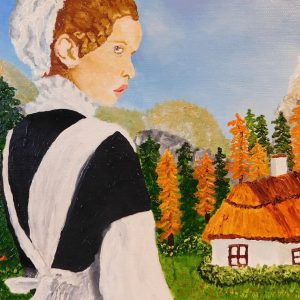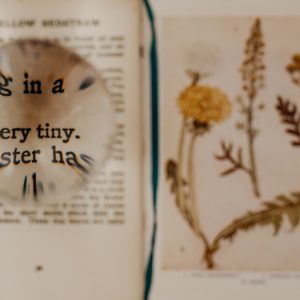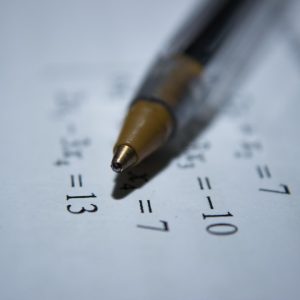Dice have been used for thousands of years as a tool for games and gambling, and they have a fascinating history that is intertwined with the development of probability theory. The earliest known dice were found in ancient Mesopotamia, dating back to around 3000 BThese dice were made of a variety of materials, including bone, wood, and stone, and were often used in games of chance and divination.
The concept of probability, which is the likelihood of a particular outcome occurring, has been studied for centuries. The ancient Greeks and Romans were among the first to explore the mathematical principles behind probability, and they used dice as a tool for understanding chance and randomness. In the 17th century, the French mathematician Blaise Pascal and the French nobleman Pierre de Fermat collaborated on a series of letters that laid the groundwork for modern probability theory. Their correspondence, which focused on solving problems related to games of chance, is considered one of the earliest examples of probability theory.
Key Takeaways
- Dice have a long history dating back to ancient civilizations, and have been used for games of chance and gambling for centuries.
- Probability is the branch of mathematics that deals with the likelihood of a given event occurring, and is closely tied to the concept of randomness.
- The Baron of Dice, a legendary figure in the world of probability, was known for his mastery of dice games and his understanding of probability.
- Strategies for mastering probability in dice games include understanding the odds, calculating probabilities, and developing a keen sense of intuition.
- The psychology of probability and decision making explores how people perceive and make decisions based on uncertain outcomes, and how this impacts their behavior in dice games and other situations.
The Mathematics Behind Probability
Probability is a branch of mathematics that deals with the likelihood of a particular event occurring. It is often expressed as a number between 0 and 1, where 0 represents an impossible event and 1 represents a certain event. The mathematics behind probability involves calculating the likelihood of different outcomes based on the number of possible outcomes and the likelihood of each outcome occurring.
One of the fundamental concepts in probability is the idea of independent events, which are events that do not affect each other. For example, when rolling a pair of dice, the outcome of one roll does not affect the outcome of the other roll. This allows for the calculation of probabilities using simple formulas, such as the probability of rolling a specific number on a single die or the probability of rolling a certain combination of numbers on multiple dice.
The Baron of Dice: A Master of Probability
In the world of probability and dice games, there is one figure who stands out as a true master: the Baron of Dice. The Baron, whose real name is Edward O. Thorp, is a renowned mathematician and author who has made significant contributions to the field of probability and gambling. He gained fame in the 1960s for his groundbreaking work on blackjack card counting, but his expertise extends to dice games as well.
The Baron’s mastery of probability is evident in his ability to calculate the odds of various dice combinations and use this knowledge to gain an advantage in games. His analytical approach to probability has earned him a reputation as one of the foremost authorities on the subject, and his insights have been instrumental in shaping modern strategies for dice games and gambling.
Strategies for Mastering Probability in Dice Games
| Strategy | Description |
|---|---|
| Understanding Probability | Learning the likelihood of different outcomes in dice games. |
| Optimal Betting | Placing bets based on the probability of certain dice combinations. |
| Statistical Analysis | Using statistical methods to analyze dice game outcomes. |
| Game-Specific Strategies | Developing strategies tailored to specific dice games. |
Mastering probability in dice games requires a combination of mathematical knowledge, strategic thinking, and a deep understanding of the game at hand. One key strategy is to calculate the probabilities of different outcomes and use this information to make informed decisions during gameplay. This can involve analyzing the likelihood of rolling specific numbers or combinations, as well as considering the potential outcomes of different moves or bets.
Another important strategy is to manage risk effectively by weighing the potential rewards against the likelihood of success. This involves making calculated decisions based on the probabilities involved, rather than relying solely on luck or intuition. By understanding the odds and using this knowledge to inform their choices, players can increase their chances of success and minimize their losses in dice games.
The Psychology of Probability and Decision Making
The psychology of probability plays a crucial role in decision making, particularly in games of chance and gambling. People often rely on heuristics, or mental shortcuts, when making decisions under uncertainty, which can lead to biases and errors in judgment. For example, individuals may overestimate the likelihood of rare events or be influenced by recent outcomes when assessing probabilities.
Understanding these psychological factors is essential for mastering probability in dice games, as it allows players to recognize and mitigate cognitive biases that can impact their decision making. By being aware of these tendencies, players can make more rational and strategic choices based on accurate assessments of probability.
The Baron of Dice’s Impact on the World of Probability

The Baron of Dice’s contributions to the world of probability have had a lasting impact on both mathematics and gambling. His work has helped to advance our understanding of probability theory and its applications in various fields, from finance to game theory. The Baron’s insights into probability have also influenced strategies for dice games and gambling, providing players with valuable tools for making informed decisions and maximizing their chances of success.
Furthermore, the Baron’s influence extends beyond his mathematical expertise; he has also inspired others to delve into the world of probability and explore its potential applications. His work has sparked interest in probability theory among mathematicians, researchers, and enthusiasts alike, leading to further advancements in the field and a deeper understanding of chance and randomness.
Honing Your Skills: Tips for Improving Your Probability Mastery
For those looking to improve their mastery of probability in dice games, there are several tips that can help sharpen their skills. First and foremost, it is essential to develop a solid understanding of basic probability concepts and formulas, such as calculating probabilities for different dice combinations or understanding the principles of independent events.
Additionally, practicing critical thinking and strategic decision making can enhance one’s ability to apply probability theory effectively in dice games. This involves analyzing different scenarios, weighing the potential outcomes, and making calculated choices based on the probabilities involved.
Furthermore, seeking out resources such as books, online tutorials, or courses on probability theory can provide valuable insights and strategies for mastering probability in dice games. By continuously honing their skills and expanding their knowledge base, players can improve their ability to assess probabilities accurately and make informed decisions during gameplay.
In conclusion, dice have a rich history that is closely intertwined with the development of probability theory. Understanding the mathematics behind probability is essential for mastering dice games, and figures like the Baron of Dice have made significant contributions to this field. By employing strategic thinking and understanding the psychology of probability, players can improve their mastery of probability in dice games and make more informed decisions during gameplay. The impact of experts like the Baron has been profound, inspiring others to explore the world of probability and contributing to advancements in this fascinating field. With dedication and practice, individuals can hone their skills and improve their ability to assess probabilities accurately in dice games, ultimately enhancing their chances of success.
If you’re a fan of the baron of dice, you’ll love this article on the latest dice trends and designs from Balls Band. Check out their collection of unique and stylish dice sets that are perfect for any tabletop gaming enthusiast. Whether you’re a seasoned player or just starting out, you’ll find something to elevate your gaming experience.
FAQs
What is a baron of dice?
A baron of dice is a title given to someone who is skilled and experienced in playing dice games, particularly in the context of gambling.
What does it take to become a baron of dice?
To become a baron of dice, one must have a deep understanding of various dice games, including their rules, strategies, and probabilities. It also requires a significant amount of practice and experience in playing dice games.
Is being a baron of dice a recognized title or position?
The title of baron of dice is not an official or recognized title in any formal organization or institution. It is more of a colloquial or informal designation given to individuals who excel in playing dice games.
What are some common dice games that a baron of dice might excel in?
A baron of dice might excel in popular dice games such as craps, sic bo, and various forms of poker that involve dice, such as “liar’s dice” or “ship, captain, crew.”
Are there any competitions or events for barons of dice?
While there are no specific competitions or events exclusively for barons of dice, skilled dice players may participate in gambling tournaments or events where dice games are featured. These events may provide opportunities for barons of dice to showcase their skills and compete against other players.





